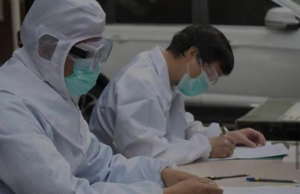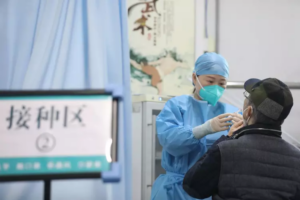
Hong Kong expert Xu Shuchang: New coronavirus infection will gradually become an endemic disease
The Macau New Coronavirus Infection Response Coordination Center has recently announced that since the 8th of this month, the new coronavirus infection will become a “endemic disease” in Macau. Recently, scholars including Zhang Wenhong, Director of the National Center for Infectious Diseases and Director of the Department of Infection at Huashan Hospital of Fudan University, have also made similar predictions about the development trend of neo-coronavirus infection. In an interview with the Global Times on the 11th, Xu Shuchang, an expert advisor to the Hong Kong SAR government and Chair Professor of Respiratory Medicine at the Chinese University of Hong Kong, believes that NIV has become a “endemic disease” in Hong Kong, and he predicts that NIV in the mainland will also enter an endemic phase, and that further increasing the vaccination rate is the best way to The best way to deal with it.
Xu Shuchang told the Global Times that because of the super-contagious nature of the Omicron variant, it has become “deeply rooted in every country and region. When the source of virus transmission is difficult to find, the new coronavirus infection will gradually become an endemic disease. According to the CDC, an endemic epidemic is the persistence or regular prevalence of a disease or pathogen in a population within a certain geographic area, while a pandemic is a global, simultaneous epidemic that occurs frequently in a large geographic area and in a large population, across borders and even continents.
Under such circumstances, the epidemic prevention policies that worked in the past are no longer effective, and countries and regions must adjust their strategies, Xu Shuchang said.
On the 8th of this month, China implemented a “Category B” control for novel coronavirus infections. Liang Wannian, head of the National Health Commission’s Leading Group of Experts on Outbreak Response, said that the immunity of the domestic population is improving, the capacity of the health care system is improving, and social public health interventions must be moderately adjusted.
As the trend of the epidemic changes locally and globally, a number of countries and regions have successively declared the new coronavirus infection as an endemic. Late last year, Indonesia announced the lifting of nationwide restrictions related to NCA infections. The chairman of the country’s New Coronavirus Response Committee, Erlanga Hatato, said New Coronavirus is still present in the community, but as the population becomes more immune, the spread of the virus becomes manageable and the Indonesian government will look at how to respond to it as an endemic epidemic in the future. Earlier last year, then-Prime Minister Johnson of the United Kingdom also announced that the new coronavirus infection had become endemic in the United Kingdom. Subsequently, the country lifted the vast majority of its epidemic prevention measures.
In addition, several scholars in the United States, Europe and Australia also believe that the new coronavirus infection is moving toward an endemic epidemic. Jeremy Luban, a professor of virology at the University of Massachusetts, believes that as the rate of severe illness and mortality caused by the new coronavirus decreases and most people gain some immunity through vaccination or infection, then the new coronavirus infection can be considered to have become an endemic disease.
After entering the first wave of a large-scale epidemic, China will gradually enter the endemic phase, Wenhong Zhang said at a recent forum. In his speech, Wenhong Zhang introduced that there have been five large-scale epidemics of infectious diseases worldwide in the last 100 years. Except for the new coronavirus, the first four were all influenza. Nowadays, influenza has become an endemic infectious disease.
Xu Shucheng as well as Kong Fanyi, an expert advisor to the SAR government, both argued in an interview with the Global Times that the New Coronavirus infection has entered an endemic phase in Hong Kong. According to Kung Fan-ngai, the vaccination rate in Hong Kong is high, many citizens have already been infected, and the barrier formed by this mixed immunization is very high, so there are conditions for further removal of restrictive measures.
According to Hui Shu-cheong, it becomes particularly important to boost the vaccination rate of the new crown vaccine in the future, and Hong Kong has now started the fifth dose of the vaccine. Xu predicts that thereafter, annual vaccination with the new crown vaccine may be required in the same way as the flu vaccine. “For the next year or so, I think we will still need to get the neo-crown vaccine every year. But as the neo-crown virus mutates further, it may become milder and after a few infections, our bodies will develop stronger immunity. Hopefully by that time we will no longer need to be vaccinated as often.”


Average Rating